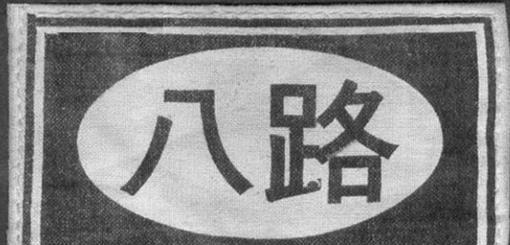The Eighth Route Army, fully known as the Eighth Route Army of the National Revolutionary Army, was later renamed the Eighteenth Group Army of the National Revolutionary Army, as an anti-Japanese army led by the Communist Party of China, although the Eighth Route Army was initially in the rise, its combat strength was amazing, and it made outstanding achievements in the anti-Japanese battlefield.

Looking back at the vast history, after the Xi'an Incident, Chiang Kai-shek was forced to accept the cooperation of the Kuomintang and the Communist Party, so why was he given the name of the Eighth Route Army of the Red Army? What are the hidden secrets.
On December 12, 1936, the "Xi'an Incident" broke out, and Chiang Kai-shek was forced to accept the idea of stopping the civil war and jointly resisting Japan, but at the time of the survival of the nation, Chiang Kai-shek always regarded the Chinese Communist Party as a major problem in his heart, and has been deliberately delaying cooperation negotiations for various reasons. Until August 13, 1937, the Outbreak of the Shanghai War of Resistance, in the face of the fierce anti-Japanese wave and shortage of troops throughout the country, Chiang Kai-shek had to agree to the "March 8 Agreement" and agreed to grant the Red Army a number, but in the granting of the Eighth Route Army number and the jurisdiction of An Fat, Chiang Kai-shek had his own small ninety-nine.
The name of the Eighth Route Army of the National Revolutionary Army was originally the Eighth Route Army of Li Jishen of the Guangdong Army, but it was always empty at that time.
It turned out that on August 5, 1927, the troops of the "August 1st Uprising" withdrew from Nanchang and moved to the Dongjiang area of Guangdong. Li Jishen was appointed by Chiang Kai-shek as the commander-in-chief of the Eighth Route Army to encircle and annihilate the rebel forces. On the eve of the outbreak of the Chiang-Gui War in 1929, Chiang Kai-shek deceived Li Jishen into going to Nanjing in order to break up the Guangdong-Guangdong Alliance. On the evening of March 21, Chiang Kai-shek imprisoned Li In Tangshan and "permanently expelled from the party" on the grounds that Li had conspired to collude with the Gui clan against the central authorities. In April of the following year, Chiang Kai-shek announced the disbandment of the Eighth Route Army, which was vacant and now comes in handy.
The red army's reorganized three divisions used the number of Zhang Xueliang's northeast army.
From April to June 1937, the various units of the Northeast Army were reorganized by Chiang Kai-shek in accordance with the principle of integrating 2 divisions into 1 division, and the numbers of the 115th, 120th, and 1293rd divisions were vacated. The reason was that Zhang Xueliang's northeast army had a poor record of battle, and he suffered consecutive defeats, and Chiang Kai-shek revoked the names of these three divisions one after another
Chiang Kai-shek was very superstitious and very afraid of the "unlucky" numbers of the defeated army or the "rebel army", so he distributed these numbers to the Red Army.
On August 22, Chiang Kai-shek and the Military Commission of the Nationalist Government issued an order to reorganize the Chinese Workers' and Peasants' Red Army into the Eighth Route Army of the National Revolutionary Army, with Zhu De as the commander-in-chief and Peng Dehuai as the deputy commander-in-chief, with jurisdiction over 115, 120, and 1293 divisions.
Although he had no choice but to grant the Red Army the title of Eighth Route Army, Chiang Kai-shek took pains to arrange for the eighth route army's defense zone
。
Chiang Kai-shek assigned the Eighth Route Army's combat area to the Second Theater of Operations, with Yan Xishan as its commander, north of Taiyuan and east of Datong, in the Areas of Jin and Cha, with a very narrow scope. At that time, this was one of the main targets that the Japanese were eager to capture, and it was extremely risky to fight the Japanese army here, and it was a severe test for the Red Army, which was far inferior to the Japanese army in terms of equipment, training, and supplies.
Chiang Kai-shek proposed to weaken the Communist Party's strength in the War of Resistance Against Japan and not allow the Eighth Route Army to expand, and the Kuomintang diehards spread rumors everywhere such as "the Eighth Route Army does not attack, the Eighth Route Army does not obey orders, and the Eighth Route Army develops its strength." It has successively created more than 150 incidents of anti-communist friction in North China, Shandong, Shaanxi, and other places.
But what Chiang Kai-shek never expected was that the Eighth Route Army would win a victory and achieve brilliant results.
The Battle of Pingxingguan in mid-September 1937 by the 115th Division became famous in the First World War. Subsequently, the 120th Division cooperated with the Battle of Xinkou on the frontal battlefield and the night attack on the Japanese airfield of Yangmingbao by the 129th Division, and the Eighth Route Army changed from the number of the defeated division to the prestige of the victorious division.
It is extremely ironic that when Chiang Kai-shek first gave the "unlucky" nickname to the Chinese Communist army, it was precisely the people's army that developed and grew up with these three divisions as the mainstay, and it was only after 3 years of competition with the Kuomintang army.
He completely overthrew the Chiang family dynasty and drove Chiang Kai-shek to the island of Taiwan.